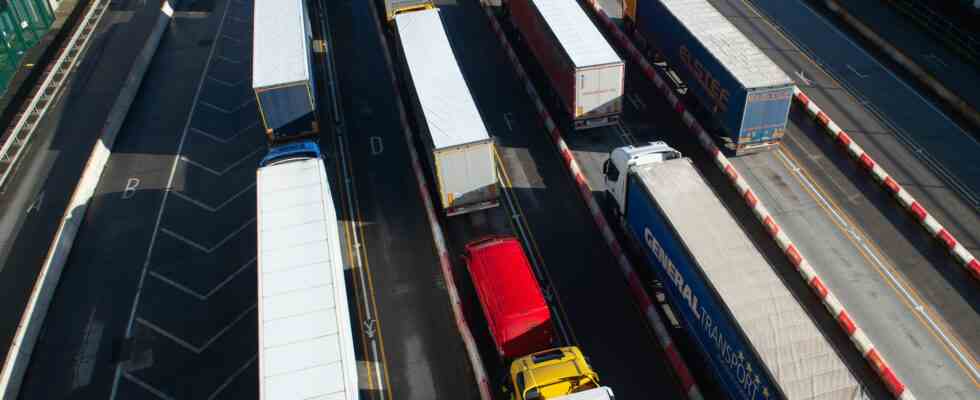Status: 04/28/2022 2:47 p.m
The British government wants to postpone the introduction of Brexit controls for imports from the EU again. It’s the fourth time. The background is also the high inflation.
Britain has postponed the introduction of import controls on goods from the European Union until the end of next year. Instead, traders can import their goods from the European Union to Great Britain as before. The British government announced today. However, the controls on imports of animals, animal products, plants and plant products introduced by the UK in January 2021 will continue to apply, it said.
The UK left the EU single market in January 2021. Since then, the implementation of full border controls has been delayed several times over concerns that the new border controls could lead to delivery difficulties and congestion at ports. As the daily newspaper “Guardian” reported today, the fourth postponement is now apparently due to high inflation.
Inflation should not be fueled any further
“Today’s decision will allow UK businesses to focus on their recovery from the pandemic, managing global supply chain issues and ensuring new costs are not passed on to consumers,” Minister responsible Jacob Rees-Mogg said today. He also referred to the Ukraine war, which is currently a heavy burden for companies. The government has therefore concluded that it does not want to impose new administrative requirements on companies which they then pass on to consumers.
In March, UK inflation had reached 6.2 percent. In April, the energy prices for households in the basic tariff also rose by more than 50 percent, and social security contributions were also increased significantly.
The government said it will now examine how best to implement the remaining controls to smooth the process. A new plan will be published later this year and new control regulations will come into force at the end of 2023.
Various controls are omitted
The controls that are now not being introduced include sanitary and phytosanitary controls at the border, as well as security declarations and restrictions on the import of chilled meat. Today’s decision could cost the government up to a billion pounds.
Hilary Benn, co-chair of the UK’s Trade and Business Commission, said the move was an acknowledgment that customs controls would exacerbate the cost of living crisis, while UK exporters still face additional costs and delays from Brexit.
“It is exceptional that UK imports are being favored over UK exports to the EU and this only underscores the trade barriers erected by their flimsy Brexit deal,” Benn said.

